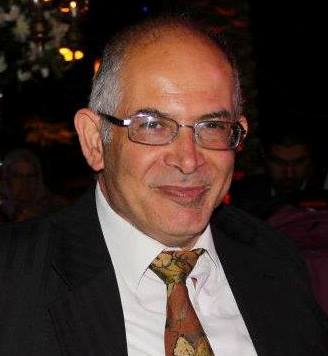What better way to get people to recognize the values of ancient theaters than through the youngest members of society: Schoolchildren.
This is exactly what happened when a congregation of schoolchildren gathered in the auditorium of the South Theater in Jarash to watch the stone stage become alive with acts of showmanship, providing a fully studied edutainment procession.
An impressive educational activity, it was organized by the Jordan Department of Antiquities/ATHENA Project of the Enhancement of Ancient Theater for New Actualities, a consortium of Euro med partner countries including Tunisia, Italy, Spain, Algeria, and off course Jordan, as part of an EU-funded project, under Euro med Heritage 4.
Meeting in Amman, their delegates enjoyed the razzmatazz of interaction where pupils of both sexes listened to a unique educational event on that relatively hot morning of 5 May 2012.
Standing in the shade of the South Theater entrance Vomitoria, Tunisian ATHENA Project three-person delegates expressed much enthusiasm of what they were seeing.
“Great crowd of people, so-well disciplined, and much interactivity between the pupils and with the acts on stage, showing the dynamics of an ancient theater” Team Leader Dr Ahmad Al Marwani from the Institute for Literary Studies and Human Sciences of the University of Tunis commented as he watched.
The show began with a high-powered celebration, more like a colorful festival of performances, music, song and plays on stage that brought delight to the over 1500 pupils from schools in the Jarash area, Al Salt, Amman and Zarqa—different areas of Jordan.
With a vibrant young MC in the lead, the show kicked off in style as she made every effort to engage the children that were from the 4th till 10th grades wearing caps and T Shirts carrying the ATHENA logo and a slogan that read “our cultural heritage is part of our identity” and “ancient theaters are for all…lets preserve them”.
ATHENA Project Manager Nizar Al Adarbeh appeared on stage and asked the children to give a big hand to the Mediterranean guests and told them to enjoy the festive bonanza. It was a fun morning with teachers, families and staff, sitting among the pupils that had a strong social mix from public and private schools and the physically challenged.
The educational activity was especially targeted in the South Theater, one of the sites under study in the ATHENA Project, an ancient theater built during the reign of Domitian in the late AD 1 Century and completed in the early AD 2 Century but in a very good shape.
“We wanted to hold this activity especially in the South Theater to show ancient theaters such as this are indeed ‘theaters for all’ and can still be utilized for many different activities without being damaged,” says Al Adarbeh.
Pupils from the public and private schools were delighted. “It was great performance with lots of variety, and the pupils ecstatic, as you saw by yourself”, a teacher from one of the schools nearby the theater told me.
“I only regret the fact that I didn’t bring more of my pupils to the event, judging from the excitement of the children and teachers who did go, they would have really enjoyed themselves,” said Iman Al Majali, headmistress of a school in Amman who caters mainly for those that have some form of disability.
The public schools came from those within the Madrasati Initiative concerned with providing extra-curricular activities while the Rahaf organization brought some private schools from Amman and staged the activities.
“Madrasati officials were so impressed with the content performance, they told us, they wanted a repeat performance in other public schools around the Kingdom and they wanted us to handle such activity,” Rahaf Executive Director, Ibtihal Ahmad said.
It was a blend of shows with three cameras and different tripods filming the event not to mention the clicking cameras as they shuttered on the Roman Army legionnaires dressed in their full colorful armor and the captivation of the audience as they watched the maneuvers, tactics and gladiatorial fights.
“We wanted the event to be recorded on film as a documentation of a very important activity that will serve a future reference to the ATHENA Project and can be used by the other partners to hold other awareness activities on the importance of protecting ancient theaters,” adds Al Adarbeh.
Youthful teenagers still in school and those in their early 20’s performed these activities. The so-called “Beat Box” was simply about a young student playing different tunes using his mouth, the idea being to show the impressive acoustics of the theater laid down thousands of years ago.
As well, there was a break-dance group, a coral group, a play on pedestrian crossings by students from the Academy of the Visually Impaired in Amman and a social play from the Burj School in Jarash on the evils of honor crimes.
“We were introduced to a great variety of acts at this educational activity, a stark reminder that the theater was utilized for different events in ancient times,” pointed out Algerian team leader Fatoum Kharchi from the Bati Environment Laboratory of the Houari Boumediene University of Science and Technology.
There was an extraordinary level of solidarity as shown by the public and private sectors. Everyone wanted to help. Samaa Water, a local bottling company and Pepsi quenched the thirst of the audience.
The Jordan Tourist Police made every available effort to keep the young audiences happy. The Central Traffic Department in Amman had banners on stage and wanted to show the young audience the importance of following traffic safety rules in the Kingdom’s roads.
Many schools volunteered. The Modern Systems Schools provided buses to take students and volunteers from Amman to the theater site and back, and Al Manhal International School provided the choral singing.
It was an educational activity and social engagement between the organizers, auditorium and stage with a triangular circle linked by the MC who lowered and heightened the pitch of the audience.
“It was an extremely organized and professional activity, with the pupils totally immersed with the acts performed on stage and I think this is a good way to get the ATHENA Project message across about the need to protect such valuable theaters, and which can be used at the same time,” pointed out Spanish Team leader Dr Maria Teresa Doménech Carbó of the Institute of Restoration and Heritage of the University Polytechnic of Valencia.
The Jarash educational activity was by no means an easy feat for there was considerable logistical issues to consider: Arranging for the pupils from the 27 schools to attend on that day at a precise time in the morning, arranging for the buses, and in making sure that performing groups came from Amman with their equipments. It was a great day to remember!
www.athenaproject.eu
Getting an ‘edutainment’ taste in Jarash
By: Marwan Asmar - on: Sunday 12 November 2017 - Genre: Theater
Upcoming Events
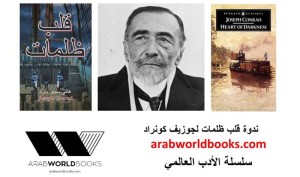
Joseph Conrad's Heart of Darkness Discussion
April 27, 2024
Join us for a special discussion of Joseph Conrad&...
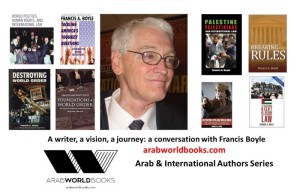
A writer, a vision, a journey: a conversation with Francis Boyle
February 24, 2024
This event took place on 24 February 2024 Yo...
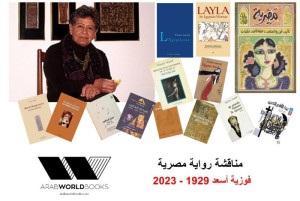
Discussion of Fawzia Assaad’s An Egyptian Woman
November 25, 2023
In celebration of the life and outstanding achieve...
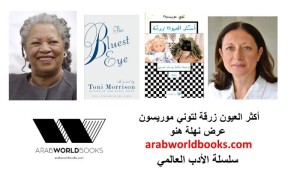
Toni Morrison's The Bluest Eye, A Presentation and Discussion
October 28, 2023
This presentation and discussion of Toni Morrison&...
